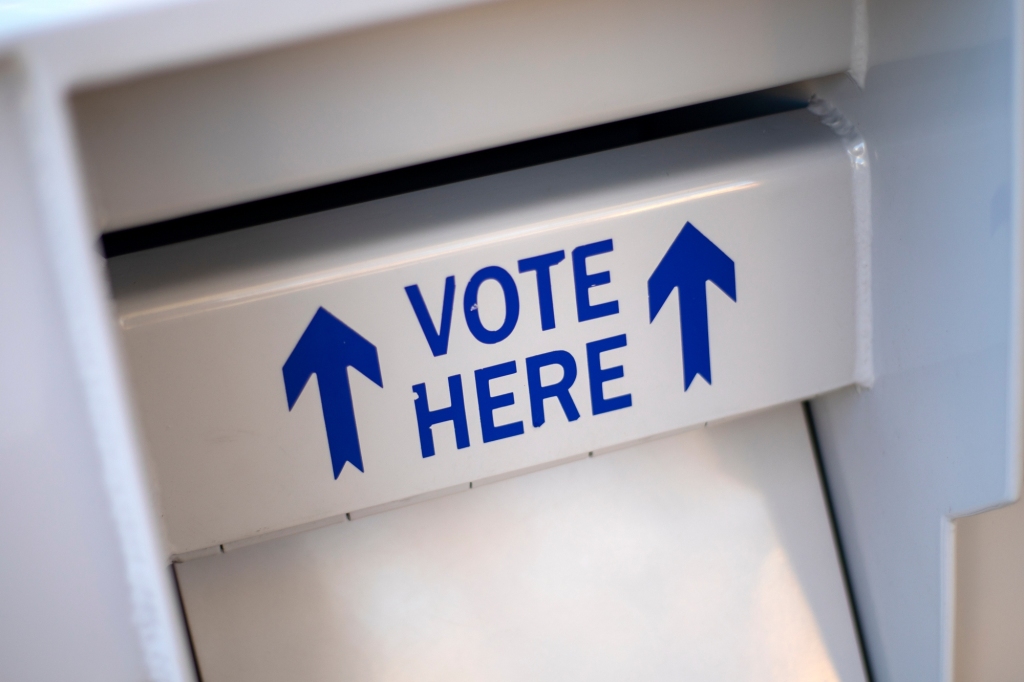Faced with growing budget deficits and rising costs, four cities across the Bay Area are asking voters this November to approve various new business taxes that could yield millions of dollars from top employers to help tackle housing, homelessness and transportation woes.
Palo Alto, Santa Clara, Los Gatos and Oakland are eyeing completely new or revamped business taxing tools to shore up budgets slashed amid the pandemic and future economic uncertainty – following the footsteps of Mountain View, which in 2020 aimed its new business tax squarely at Google and its over trillion dollar valuation.
With inflation high and the threat of an economic recession looming, these cities are betting voters will approve new taxes despite the threat of businesses leaving the Bay Area. Back in 2020, Oracle announced it would leave its sprawling campus in Redwood City for new digs in Austin, Texas, a trend many other large companies across the Golden State are following.
Despite the odds, Palo Alto could approve its first levy in its history, while Santa Clara and Los Gatos could rake in millions from updating existing business tax policies unchanged since the 1990s. And if approved, Oakland’s progressive tax measure could overhaul its tax rates, forcing big businesses to pay a considerably higher tax than smaller ones.
So far, it appears carefully crafted compromises with the business communities have helped ward off strong opposition to new taxes across the region.
In Palo Alto, city leaders spent days discussing the proposed tax with a coalition of business leaders to devise a compromise ballot measure that would net the city more than $8 million a year and still keep business interests happy. Even then some criticized the measure as too pared down and insufficient to raise enough revenue to help the city deal with thorny issues such as expensive-to-build affordable housing.
The proposed tax, a levy on office space, would begin in 2026. It proposes to impose a 7.5-cent levy on each square foot of office space for all non-exempt businesses with over 10,000 square feet of space. The tax measure caps the tax contribution from any company at $500,000 annually and the tax would increase at a flat 2.5% rate per year. About 50% of businesses in Palo Alto are exempt, including all small businesses.
City leaders touting the measure have said $5.2 million would fund affordable housing and $3.2 million would be spent on public safety. The compromise tax measure ensures that business interest money won’t be used to fund an opposition campaign.
“Our chances for success with voters drastically improve as a result of the compromise where we do not have opposition from the business community,” Mayor Pat Burt said.
It’s the same in Los Gatos. The town council worked with business leaders, including streaming giant Netflix, which has its headquarters there, to devise a tax to avoid drawing the ire and millions in potential negative campaign spending from the business community.
Los Gatos voters will head to the polls to consider revamping the city’s business licensing tax – the first update in three decades – in order to capture dollars from e-commerce and deliveries, the newest trends in consumption. The proposed tax would increase overall contributions from the city’s top employers, and the five companies that fall into that category – including Netflix – would pay $300 for every $550,000 earned above $12 million. The current tax requires companies like Netflix to pay $75 for every $550,000.
While Netflix criticized the tax increase, saying the town was targeting the company that employs nearly 11,000 people, it has not launched a negative campaign against the tax so far. Mayor Rob Rennie said he believes it’s unlikely the company will.
“We’ve invested a lot into our downtown and into fostering a good environment for business in this town,” Rennie said. “We’re trying to be business-friendly, so we don’t want to scare business out of town.”
Rennie said the discussions the council had with Netflix on the proposed tax weren’t “negotiations,” though the company appears to be “happy with us.”
“We told them what we were trying to do and they told us what they thought would be acceptable and then came back to the council,” Rennie said. “Sure, we need to be sensitive that they have laid off a few people lately. But the extra money they’re going to pay is insignificant compared to their total budget.”
Netflix could not be reached for comment.
Los Gatos’ tax is a far cry from the overhaul that Oakland is trying to get voters to approve this fall.
Current tax law requires that small businesses such as mom-and-pop corner shops pay the same flat tax rate as giant companies that generate hundreds of millions of dollars in yearly revenue. The progressive business tax measure put on the ballot by the Oakland City Council would modify these rates so that big business would pay a considerably higher tax rate than smaller ones.
Though proponents of the measure say it will lower the tax rate for small businesses, that is only true for the smallest businesses in a select few industries – such as grocers.
Small businesses in most industries will actually be taxed at the same rate if this measure is passed, while all businesses generating more than $1 million in gross receipts per year will experience a tax hike.
The Oakland City Finance Department estimates these steeper business tax rates would raise an estimated $20.9 million in annual revenue.
Oakland City Council Member Dan Kalb said the additional tax money could be directed toward addressing long-standing issues facing the city, including homelessness and infrastructure.
“We realized we are leaving money on the table here,” Kalb said.
A similar overhaul is happening in Santa Clara, where a new “headcount” business tax that could rake in millions is on the ballot. The city, like Los Gatos, has not updated its tax system for nearly 30 years and charges about $15 up to $500 annually based on the employer and number of employees.
The proposed measure would create new tiers based on a business’s employee count, which officials say is more equitable. The new tax would charge $45 per employee with a cap of $350,000 starting July 2023.
Businesses that earn less than $5,000 a year in gross revenue will be exempt from the tax and the city manager’s budget is expected to include $330,000 to help small businesses that request financial aid. The city is seeking to tackle a nearly $20 million budget deficit.
But for the business community, new taxes aren’t the right avenue for shoring up tight budgets. In a statement to this news organization, Dan Kostenbauder, vice president of tax policy for the Silicon Valley Leadership Group, said the proposed tax increases are problematic.
Though he would not comment on the Oakland and Los Gatos tax measures, Kostenbauder said the leadership group had serious concerns with the size and scope of an earlier plan that would’ve brought in more revenue in Palo Alto, but “agreed not to oppose the tax” after the city pared down its measure by nearly half.
As for Santa Clara, Kostenbauder said the group “greatly appreciates that the Santa Clara City Council took input very seriously from SVLG, many of our member companies, and the business community generally, when developing their business tax.”










